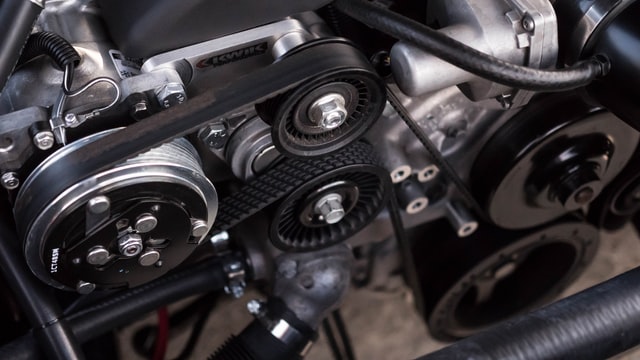Is My Jeep Eligible Under California Lemon Law?
Hitting the open road in your Jeep should be an adventure, not a frustrating detour into mechanic shops and warranty disputes. Unfortunately, sometimes even the most rugged vehicles can turn into lemons, leaving you with a bitter taste of disappointment and financial strain. But fear not, California Lemon Law stands tall as your champion, empowering you to take control and demand a fair resolution.

Understanding the Basic Requirements
Vehicle Eligibility
- New and Used Vehicles: California Lemon Law covers both new and used vehicles purchased or leased from licensed dealerships within the state.
- Timeframe and Mileage: Generally, the law applies to vehicles within four years of their original purchase date or within 40,000 miles, whichever comes first. However, there are exceptions:
- Extended Warranty Periods: If your Jeep has an extended warranty exceeding the original warranty, the lemon law protections may extend for the duration of that warranty.
- Early Model Years: For vehicles purchased between 1994 and 2004, the mileage limitation does not apply, only the four-year timeframe.
- Exceptions:
- Commercial Vehicles: Vehicles with a gross vehicle weight rating (GVWR) exceeding 10,000 pounds are typically excluded.
- Out-of-state Purchases: Vehicles purchased outside California are not covered unless registered in the state within the designated timeframe.
- Second-hand Purchases: Purchases made from private individuals instead of dealerships do not qualify.
Defect Definition
- What constitutes a “defect” under California Lemon Law: A defect is defined as any nonconformity in the vehicle that substantially impairs its use, value, or safety. This includes:
- Manufacturing defects: Issues caused by errors or flaws in the production process, such as faulty engine components, transmission problems, electrical malfunctions, or body panel misalignments.
- Design defects: Inherent problems with the vehicle’s design that affect its performance or functionality, such as excessive engine noise, vibrations, or recurring brake problems.
- Materials defects: Faulty materials used in the vehicle’s construction that lead to premature wear and tear or malfunctions, such as cracking dashboards, leaking roofs, or rusting components.
- Common Jeep Defects covered by the law: Several known issues plaguing Jeeps have been cited in successful lemon law claims, including:
- Death Wobble: Violent steering vibrations at highway speeds, potentially caused by defective suspension components.
- Transmission Slippage: Jerking, hesitation, or difficulty shifting gears due to transmission problems.
- Engine Stalling: Sudden engine shutdowns while driving, posing safety risks.
- Electrical System Issues: Erratic lighting, malfunctioning instrument panel, or intermittent power failures.
- Top Leaks: Water infiltration into the cabin through the convertible top, causing damage and mold growth.
- Differentiating from Normal Wear and Tear: Normal wear and tear from regular use is not considered a defect. However, if the wear and tear occurs much faster than expected or significantly impacts the vehicle’s performance, it may be indicative of a deeper problem covered by the law. Consulting a mechanic or lemon law attorney can help clarify this distinction.
Repair Attempts
- “Reasonable Number” of Repair Attempts: Before pursuing a lemon law claim, the manufacturer must have been given a “reasonable number” of opportunities to repair the defect.
- Specific Criteria: Generally, a reasonable number of attempts is defined as:
- Two attempts for a safety-related defect: This includes any malfunction that could potentially cause injury or death, such as brake failure or steering problems.
- Four attempts for any other substantial defect: This applies to issues that significantly impact the vehicle’s usability or value, such as persistent engine problems, transmission issues, or recurring electrical malfunctions.
- Vehicle out of service for more than 30 days cumulatively: Even if the number of repair attempts falls short of the criteria, if the vehicle is out of service for repairs for a total of more than 30 days within the warranty period, it may be considered a lemon.
- Documenting Repair Attempts: Keep meticulous records of all repair attempts, including:
- Dates and details of the malfunctions experienced.
- Copies of repair orders and invoices.
- Correspondence with the dealership, including repair logs and notes of conversations.
Substantial Impairment
- Impact on Use, Value, or Safety: The defect must significantly affect one or more of these key aspects of the vehicle to qualify under the lemon law.
- Examples of Substantial Impairment:
- Frequent Breakdowns: If the vehicle is unreliable and experiences recurrent malfunctions that prevent regular use, it could be considered substantially impaired.
- Diminished Resale Value: A known and unrepaired defect can significantly decrease the car’s market value, affecting your ability to sell it at a fair price.
- Safety Risks: Any defect that poses a potential safety hazard, such as unreliable brakes, faulty airbags, or malfunctioning steering, qualifies as substantial impairment.

Gathering Evidence and Building Your Case
Documenting Your Jeep’s Problems
- Detailed Log: Maintain a chronological log of all issues experienced with your Jeep. Include:
- Date and time of each malfunction or symptom.
- Specific description of the problem, including any warning lights, sounds, or performance changes.
- Severity and frequency of the issue.
- Any potential impact on driving safety or functionality.
- Notes on weather conditions or driving environment when the problem occurred.
- Repair Attempts: Document every interaction with the dealership for repairs:
- Dates of service appointments and repair orders.
- Descriptions of the repairs performed and parts replaced.
- Communication with service personnel, including names, phone calls, and emails.
- Outcome of the repair attempt and whether the problem was resolved or persisted.
- Supporting Evidence: Collect tangible proof of your issues:
- Photographs or videos of the malfunction or its effects (e.g., dashboard warning lights, engine noise, leaking fluids).
- Audio recordings of conversations with dealership representatives.
- Diagnostic reports or repair estimates from independent mechanics.
- Copies of receipts for any related expenses (e.g., towing fees, rental car costs).
Consulting with a California Lemon Law Attorney
- Benefits of Legal Advice:
- Understanding the Law’s Nuances: Lemon Law is complex, with specific requirements and interpretations. An attorney can guide you through the intricacies and ensure you meet all eligibility criteria.
- Case Assessment and Strength: Lawyers can analyze your situation, identify potential weaknesses in your claim, and suggest strategies to strengthen it.
- Navigation and Paperwork: Legal professionals can handle the paperwork, deadlines, and communication with the manufacturer, freeing you from stress and ensuring proper process.
- Maximizing Your Remedy: Attorneys can negotiate for the best possible outcome, whether it’s vehicle repurchase, replacement, or financial compensation.
- Types of Lemon Law Attorneys: Look for attorneys specializing in consumer law and California Lemon Law. Consider their experience, success rates, and client reviews. Some firms offer free consultations to discuss your case.
Gathering Additional Evidence
- Independent Repair Estimates: Obtain estimates from qualified mechanics outside the dealership to document the extent of the defect and its repair cost. This can strengthen your case if the dealership’s repairs were inadequate.
- Online Research and Consumer Reports: Search online forums, car review websites, and consumer complaint databases to find reports of similar issues with your specific Jeep model and year. This helps demonstrate the widespread nature of the defect and strengthens your claim.
- Witness Testimonies: If anyone else has witnessed the problems with your Jeep, their testimony can be valuable supporting evidence. This could include passengers, mechanics who diagnosed the issue, or towing service personnel who assisted you due to breakdowns.
Additional Tips
- Keep organized files: Maintain all documentation in a secure and easily accessible system, both physically and electronically.
- Communicate promptly with your attorney: Inform them of any new developments, repair attempts, or communication with the manufacturer.
- Be prepared to answer questions: Be ready to provide detailed information about your Jeep’s problems, repair history, and communication with the dealership.
- Stay patient and persistent: Pursuing a lemon law claim can be a lengthy process. Remain patient and persistent throughout the process, and trust your attorney to guide you through it.
By meticulously documenting your case and gathering strong evidence, you can significantly improve your chances of successfully claiming your rights under California Lemon Law and obtaining a favorable resolution for your defective Jeep.

Filing a Lemon Law Claim
Pre-litigation Notification
- Formal Demand Letter: Before initiating a lawsuit, California Lemon Law requires sending a formal “demand letter” to the manufacturer. This letter informs the manufacturer of your intention to pursue a claim and outlines the specifics of your case.
- Content of the Letter: The letter should include:
- A clear statement of your claim under California Lemon Law.
- Detailed descriptions of the Jeep’s defect, including dates, symptoms, and impacts.
- Proof of attempts to repair the defect at authorized dealerships, with copies of repair orders and invoices.
- Your desired remedy: vehicle repurchase, replacement with a comparable vehicle, or financial compensation.
- A deadline for the manufacturer to respond and propose a resolution, typically 30 days.
- Delivery and Proof of Service: Send the letter certified mail with return receipt requested to ensure documented delivery.
Mediation or Arbitration
- Alternative Dispute Resolution Options: Before proceeding to court, both you and the manufacturer have the option to choose alternative dispute resolution (ADR) to reach a settlement outside the courtroom. These options include:
- Mediation: A neutral third party facilitates communication and negotiates a mutually agreeable solution. Mediators have no authority to impose a decision, but their guidance can often lead to faster and less expensive resolutions.
- Arbitration: A neutral arbitrator, similar to a judge, hears arguments and evidence from both sides and then makes a binding decision on the case. While faster than going to court, arbitration usually has higher costs and limited appeal options.
- Choosing the Right Option: Factors to consider when choosing between mediation and arbitration include:
- Preference for collaboration or a decisive ruling.
- Level of control over the outcome.
- Potential costs and timeframe for each process.
- Consult your lemon law attorney to decide which option best suits your specific case.
Filing a Lawsuit
- Legal Representation: If ADR efforts fail or are not preferred, you can initiate a lawsuit against the manufacturer with the help of your lemon law attorney.
- Case Preparation: Your attorney will:
- Gather and organize all relevant evidence, including documentation, repair records, witness statements, and expert reports.
- Draft the lawsuit complaint outlining your claims and legal arguments.
- File the lawsuit with the appropriate court and initiate the formal legal process.
- Presenting Your Case: In court, your attorney will:
- Introduce evidence and witness testimonies to demonstrate the severity of the defect and the manufacturer’s failure to repair it adequately.
- Argue on your behalf based on California Lemon Law statutes and precedents.
- Counter any arguments presented by the manufacturer’s defense attorneys.
- Potential Outcomes: There are three main outcomes of a lemon law lawsuit:
- Winning the Case: If the court finds in your favor, you will receive your desired remedy, which could be:
- Vehicle Repurchase: The manufacturer buys back your Jeep at the full purchase price, including finance charges and taxes.
- Vehicle Replacement: The manufacturer provides you with a comparable, defect-free Jeep model.
- Financial Compensation: You receive monetary compensation for the diminished value of your Jeep or for repair costs incurred.
- Losing the Case: If the court finds against you, the lawsuit is dismissed, and you may be responsible for some court costs.
- Settlement: Reaching a settlement agreement outside of court is still possible during the lawsuit process. This can occur through negotiations between your attorney and the manufacturer’s lawyers.
- Winning the Case: If the court finds in your favor, you will receive your desired remedy, which could be:
Remember, pursuing a lemon law claim can be a complex and lengthy process. Seeking experienced legal counsel and staying informed about your options throughout the journey can significantly increase your chances of success in obtaining a fair and just resolution for your defective Jeep.

Resources and Support
California Department of Consumer Affairs (DCA):
- Information: The DCA provides comprehensive resources about California Lemon Law, including:
- Easy-to-understand explanations of the law’s key provisions and eligibility requirements.
- Downloadable brochures and pamphlets in multiple languages.
- FAQs addressing common questions about the lemon law process.
- Contact information for regional consumer assistance offices.
- Complaint Filing: If you have attempted to resolve your issue directly with the manufacturer and are still dissatisfied, you can file a formal complaint with the DCA’s Bureau of Automotive Repair. This complaint can help document your case and potentially escalate the matter for further action.
California Attorney General’s Office:
- Resources: The Attorney General’s office offers resources for filing lemon law claims, including:
- Sample demand letters and other legal forms you can adapt for your case.
- Information about finding legal assistance, including a directory of private attorneys specializing in lemon law.
- Links to non-profit legal organizations that may offer pro bono or low-cost representation for lemon law cases.
- Enforcement: The Attorney General has the authority to investigate and prosecute manufacturers who violate California Lemon Law. Consumers can report suspected violations through the office’s website or by contacting the Consumer Protection Unit.
Online Resources and Forums:
- Jeep Forums: Several online forums are dedicated to Jeep owners and enthusiasts. These forums can be valuable sources of information about:
- Specific problems and common defects experienced with different Jeep models.
- Tips and advice for dealing with dealerships and manufacturers regarding warranty claims.
- Support and encouragement from fellow Jeep owners who may have faced similar challenges.
- Recommendations for qualified repair shops and mechanics familiar with Jeeps.
- Consumer Complaint Databases: Websites like the Better Business Bureau (BBB) and Consumer Reports allow consumers to file complaints and share experiences with different companies, including car manufacturers. These databases can provide insights into the complaint history of specific manufacturers and dealerships and help you gauge the prevalence of similar issues with your Jeep model.
- Social Media Groups: Facebook groups dedicated to Jeep owners often offer a platform to share experiences, ask questions, and seek advice from other Jeep enthusiasts. Joining such groups can connect you with a supportive community and potentially find others who have faced similar issues with their Jeeps.
Remember, utilizing these resources and seeking support throughout the process can empower you to navigate the complexities of California Lemon Law and significantly improve your chances of securing a favorable resolution for your defective Jeep.
Additional Tips:
- Keep detailed records of your communication with all parties involved in your case, including the manufacturer, dealerships, repair shops, and legal representatives.
- Stay informed about your rights and responsibilities under California Lemon Law.
- Don’t be afraid to ask questions and seek clarification if anything is unclear.
- Be patient and persistent, as resolving lemon law claims can take time and effort.
By utilizing the available resources and seeking support, you can confidently pursue your rights under California Lemon Law and achieve a satisfactory outcome for your situation.

Navigating the Road to Resolution
Owning a defective Jeep can be incredibly frustrating, impacting your finances, your safety, and your confidence in the vehicle. Fortunately, California Lemon Law provides a powerful tool for consumers to hold manufacturers accountable and seek redress when faced with such challenges.
Recap: Your Roadmap to Resolution
- Understanding the Landscape: This guide aimed to equip you with a comprehensive understanding of California Lemon Law and its key provisions. We explored the basic eligibility requirements, including timeframe, mileage limitations, and vehicle types covered. We delved into the crucial concept of a “defect,” distinguishing it from normal wear and tear and highlighting common issues faced by Jeep owners. We clarified the “reasonable number” of repair attempts required before pursuing a claim and emphasized the importance of substantial impairment to the vehicle’s use, value, or safety.
- Building a Strong Case: We outlined the vital steps involved in building a convincing lemon law claim. We emphasized the importance of meticulously documenting your Jeep’s problems, maintaining a detailed log of malfunctions, repair attempts, and communication with the dealership. Consulting a California Lemon Law attorney was highlighted as a crucial step for navigating the nuances of the law, assessing your claim’s strength, and maximizing your chances of success. We explored additional evidence-gathering strategies, such as independent repair estimates, online research, and witness testimonies.
- Taking Action: The guide then transitioned to the three potential paths for seeking resolution: pre-litigation notification, alternative dispute resolution (ADR), and filing a lawsuit. We detailed the process of sending a formal demand letter to the manufacturer, outlining the specifics of your claim and desired remedy. We explored both mediation and arbitration as less contentious and potentially faster alternatives to courtroom proceedings, outlining their benefits and drawbacks in comparison. Finally, we addressed the legal route of filing a lawsuit, the role of your attorney in presenting your case and evidence, and the potential outcomes you might face, including vehicle repurchase, replacement, financial compensation, or dismissal of the case.
- Finding Support: Recognizing the challenges involved, we provided a wealth of resources and support systems available to navigate this process. We highlighted the California Department of Consumer Affairs website as a valuable resource for information, consumer assistance, and complaint filing. The California Attorney General’s Office was presented as a source of legal resources, assistance finding legal counsel, and even complaint submission for potential investigation and enforcement. We explored non-profit legal organizations offering pro bono or reduced-fee representation, particularly for those facing financial constraints. Finally, we emphasized the power of online communities, forums dedicated to Jeep owners, consumer complaint databases, and social media groups as platforms for information sharing, advice, and finding others who have faced similar struggles.
Moving Forward with Confidence
Navigating the intricacies of California Lemon Law can be daunting, but understanding your rights, gathering evidence, and seeking support empowers you to confidently pursue a fair resolution. This guide has equipped you with the knowledge and resources to:
- Make informed decisions: Knowing the law’s specifics and your eligibility gives you confidence when interacting with the manufacturer or dealerships.
- Build a strong case: By meticulously documenting your issues and gathering supporting evidence, you strengthen your claim and increase your chances of success.
- Choose the right path: Understanding the pros and cons of pre-litigation efforts, ADR options, and legal proceedings allows you to make informed choices about how to best pursue your case.
- Find the support you need: Utilizing the diverse resources and support systems available empowers you to navigate the process with less stress and more confidence.
Remember, you are not alone in this journey. By remaining informed, persistent, and utilizing the resources available, you can reclaim control of the situation and ultimately achieve a just outcome for your defective Jeep. So, buckle up, arm yourself with the knowledge and resources discussed in this guide, and confidently navigate the road to resolution.







